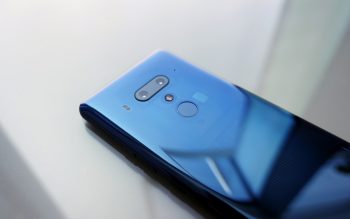
HTC, it’s time to get your act together
I think we can all agree that the smartphone industry has evolved quite a bit over the past few years. Smartphones have grown from a niche category within the mobile industry to being the prominent piece of technology that’s used by billions of people around the globe to communicate and connect us all to the web. The devices we carry around with us everywhere we go have been the key driver for many of the innovations that we love (and sometimes hate) and have given people all across the globe the ability to share their stories with the rest of the world through photos and video.
But while there has been tremendous growth in the smartphone space over the past few years, one of the key players in the smartphone revolution has been left behind and forgotten. If you’ve been an Android user for more than 3-4 years, you’re probably very familiar with HTC and its role within the Android space, but it’s quite disheartening when I mention HTC and some people have no clue what I’m talking about.
For the unaware, HTC was one of the first companies to push the concept of the smartphone. It partnered with dozens of brands to build the first Windows Mobile devices years before the Apple iPhone was released. When Android came along, Google partnered with HTC to build the first two Android devices, pushing HTC’s brand to the forefront of the smartphone world, resulting in unprecedented growth for the company. Due to its close ties with Google, HTC became the go-to brand for the largest service providers rely on to help them launch their first 4G smartphones, but the company’s upward trajectory faltered when Samsung decided to focus its attention fully on Android.
With the added competition, HTC stepped up its game to deliver its HTC One series of smartphones. The devices were phenomenal, but HTC struggled on the marketing front, something that Samsung was extremely good at. At its peak, HTC managed to capture 10.8% of the smartphone market, selling more than 44 million devices in 2011. In 2018, HTC’s revenue was lower than the first year that the company was in business and by many estimates, the company struggled to sell just 1 million devices.
HTC Revenues Hit Record High in 2011
Over the past few years, HTC has shifted its focus from the overcrowded smartphone segment to VR with the HTC Vive. While the company’s VR products are considered by many to be class-leading, the market for these products is still very small. Most people who have experienced VR have done so through the cheap smartphone adapters which don’t really offer a compelling VR experience, but purchasing the HTC Vive will set you back $500. That doesn’t include the $1,000 gaming PC or laptop you’ll need to get decent performance out of the Vive.
While HTC is gambling on VR as a transformative technology as it did with smartphones back in the day, the company has lost focus and abandoned its core business and loyal fans. Over the past 12 months, the company has released a few mid-range and budget-friendly smartphones which have failed to impress. That shouldn’t be a surprise to anyone since HTC has always struggled on the low end. HTC’s bread and butter has been within the flagship category, competing directly with the iPhone and Samsung’s Galaxy S devices.
The new HTC Wildfire X isn’t actually an HTC
Like most other companies, HTC has always released a flagship device in the spring, but HTC decided to forego a successor to the HTC u12+ this year. HTC scrapped its plans for the HTC U13+ for “something else” during the second half of 2019. While we have been waiting for HTC’s mysterious plan to unfold, the company has resorted to licensing its brand name, allowing InOne (the makers of Lava smartphones in India) to build and market the new HTC Wildfire X. I’m not exactly sure what HTC hopes to get out of the deal besides a bit of short-term cash to help keep the lights on.
At this point, it’s time for HTC to get its act together and deliver something truly extraordinary. If it can’t, the company is better off selling the remaining assets it has and closing up shop. HTC has been floundering without a clear strategy for more than a few years now under the leadership of its founder, Cher Wang. To succeed, HTC needs a change of leadership, a completely new strategy and a new commitment to delivering smartphones that will excite its core fan base while also be compelling enough to compete with flagship devices from Samsung, OnePlus and other players within the Android space.
I’d hate to see HTC file for bankruptcy and be sold off for parts, but without a massive internal change, that’s exactly what will happen. The company has been bleeding cash for years, posting losses for 17 consecutive quarters. While those losses have been steadily shrinking since Q4 of 2017, HTC is still bleeding more than $70 million per quarter. Based on its annual report, the company’s $428 million in cash reserves should be less than $280 million after the last two quarters. Even if HTC managed to cut operating costs even further and only lose $50 million per quarter, the company would run out of cash by the end of 2020.
HTC has been on life support for a long time now. Someone needs to make the decision to either pull the plug or to give the company a massive shot of adrenaline to bring it back to life. There’s no guarantee that the latter approach will work, but waiting around and hoping things will change on their own has led HTC to where it is now, simply waiting for someone to turn off the lights.